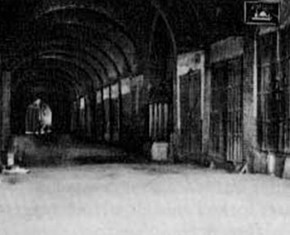The views expressed in our content reflect individual perspectives and do not represent the authoritative views of the Baha'i Faith.
I have made a covenant with my chosen, I have sworn unto David my servant; thy seed will I establish for ever, and build up thy throne to all generations. Selah. – Psalm 89:3-4.
Was Baha’u’llah, the prophet and founder of the Baha’i Faith, descended from King David?

King David in Prayer by Pieter De Grebber
Many books by Baha’is point out that Baha’u’llah’s lineage can be connected to King David. (Phil Turner “The Ancestry of Baha’u’llah” in Gary Matthews, Every Eye Shall See, pp. 77-78; Joel Smith; Alex Gottdank, Preparing for Christ’s New Name, pp. 40-41). Since Biblical prophecies have always interested me, I looked up some of the primary sources to see if I could verify this for myself.
Mirza Abu’l-Fadl, the celebrated Baha’i scholar and one of the nineteen Apostles of Baha’u’llah, undertook extensive research on the family line of Baha’u’llah, and Baha’u’llah is said to have approved his findings. Later Abu’l Fadl’s original research was lost, but in his description of the work, he said that he traced the family line of Baha’u’llah back to the Persian monarch Yazdigird III, from whose line Shah Bahram, the promised savior of the Zoroastrian religion, was expected to come (H.M. Balyuzi, Eminent Baha’is in the Time of Baha’u’llah, pp. 312-313). King Yazdigird was the last of the Sasanian dynasty, whose legendary forefather Sasan was, according to the 9th century historian Muhammad ibn Jarir al-Tabari, born of the descendants of King David.
But certainly, the contents of ancient and fallible genealogies do not amount to teachings of the Baha’i Faith. As I found, through researching the question of human genetics and race, everyone in the 19th century Middle East had the Biblical Jesse and King David as ancestors. But I was impressed by the fact that in regards to the ancestral house of Baha’u’llah, a concrete tradition to that effect has come down to us.
In terms of the fulfillment of Jewish prophecy, however, a major complication arises. Biblical genealogies emphasize paternal lines of descent, and often leave out the lineage of the mother. Jewish identity transmits maternally (or through conversion) but tribal affiliation, as in Islam, transmits down the paternal line. Yet I don’t think there is a passage in the Bible that directly mandates this. There is a case in the Torah—the daughters of Zelophehad (Numbers 27)—that actually requires daughters to inherit in absence of male issue. In Islam, the 12 Imams descend from the prophet Muhammad maternally, through his daughter Fatima al-Zahra.
In regards to his own descendants, Baha’u’llah abolished the requirement of paternal descent when he declared the Baha’i principle of the equality of men and women. For example: Shoghi Effendi, the Guardian of the Baha’i Faith, was the son of Abdu’l-Baha’s eldest daughter. So if we apply the Baha’i standard backward, Baha’u’llah is indeed the ’Branch’ of Jesse and David.
So is almost everyone else, but maybe that is part of the point. Baha’is believe that this seminal passage from Baha’u’llah: “Ye are the fruits of one tree, and the leaves of one branch”—expresses the most important Baha’i principle:
Baha’u’llah taught the Oneness of humanity; that is to say, all the children of men are under the mercy of the Great God. They are the sons of one God; they are trained by God. He has placed the crown of humanity on the head of every one of the servants of God. Therefore all nations and peoples must consider themselves brethren. They are all descendants from Adam. They are the branches, leaves, flowers and fruits of One Tree. – Abdu’l-Baha, Abdu’l-Baha in London, p. 28.
The fact that Baha’u’llah dismissed the traditional criterion of paternal descent means that his descent matches Biblical prophecies. Like everything else in the Baha’i revelation, it also reinforces the basic unity of humanity and the equality of the genders. Over time, genealogists know, it is very hard if not impossible for everyone not to be meaningfully descended from everyone if we lift matrilineal/patrilineal requirements.
This, of course, only reflects my own tentative understanding. On a personal level, no matter where I begin my research of the Baha’i Faith, even in fairly obscure historical points, the research ends up leading back to and reinforcing the inseparable unity of humanity. The multidimensional coherence of this theme throughout Baha’u’llah’s message is constantly amazing!
You May Also Like
Comments

















"THE Most Great Law is come, and the Ancient Beauty Ruleth Upon the Throne of David. Thus hath My Pen spoken that which the histories of bygone ages have related. 90 At this time, however, David crieth aloud and saith: 'O my loving Lord! Do Thou number me with such as have stood steadfast in Thy Cause, O Thou through Whom the faces have been illumined, and the footsteps have slipped!' THE Breath hath been wafted, and the Breeze hath blown, and from Zion hath appeared that which was hidden, and from Jerusalem is heard ...the Voice of God, the One, the Incomparable, the Omniscient....
(Baha'u'llah, The Proclamation of Baha'u'llah, p. 87)